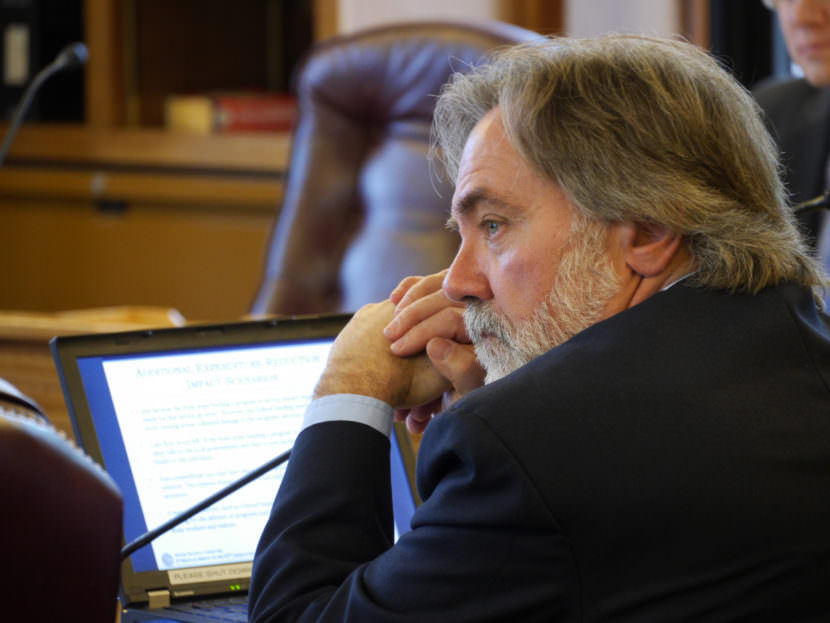
There are two weeks remaining until the legislative session is scheduled to end, but there are few signs of progress on reaching compromises on the budget and a long-term plan to pay for it.
Members of the mostly Democratic House majority say the Senate must finish more budget-related bills to allow negotiations to advance.
Homer Rep. Paul Seaton, a Republican who caucuses with the majority, said the Senate should take further action on bills that reintroduce a state income tax and raise oil and gas taxes.
“We’re having conversations, but you can’t get down to negotiations until you have solutions on both sides to look at and figure out what will work and what compromises might be necessary to be made,” Seaton said.
But the Republican House minority wants the majority to start negotiations on bills where the two sides agree.
House Minority Leader Charisse Millett said the Legislature should concentrate on the budget, eliminating some oil and gas tax credits, and a bill drawing money from the Permanent Fund.
“We’ve seen in the past, at the end game on Day 119, you’re rushing around, trying to get your conference committees done trying to negotiate a budget,” Millett said. “And we would like to have those conversations start now.”
But state Revenue Commissioner Randall Hoffbeck said passing the Permanent Fund bill without other new revenue would leave the state with too large of a budget gap. He said it could hurt the state’s credit ratings, which would add millions of dollars in borrowing costs. And Hoffbeck says it would be difficult to plan for spending cuts that the Legislature hasn’t shown a willingness to make.
Hoffbeck said if the Legislature passed a budget without a long-term plan, the state would continue to deplete the Constitutional Budget Reserve, an account that’s shrunk from $13 billion to less than $5 billion in the past four years.
“The one thing that we are not assuming one way or the other is wherever this Legislature is ultimately going to land when this is all said and done this year,” Hoffbeck said. “We are hoping for a broad solution. But is there a possibility that when it is all said and done, we get a budget and a CBR draw… it could happen.”
The session is scheduled to end on May 17, though it could be extended for up to 10 days if two-thirds of each chamber agree. If lawmakers fail to agree on a budget, Gov. Bill Walker would likely call them into a 30-day special session.
Andrew Kitchenman is the state government and politics reporter for Alaska Public Media and KTOO in Juneau. Reach him at akitchenman@alaskapublic.org.




